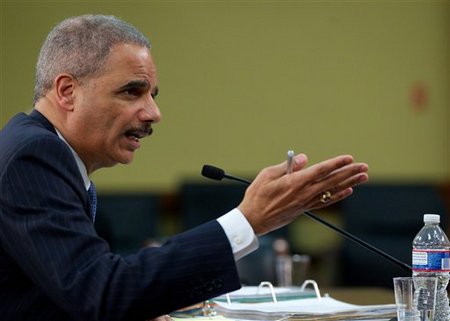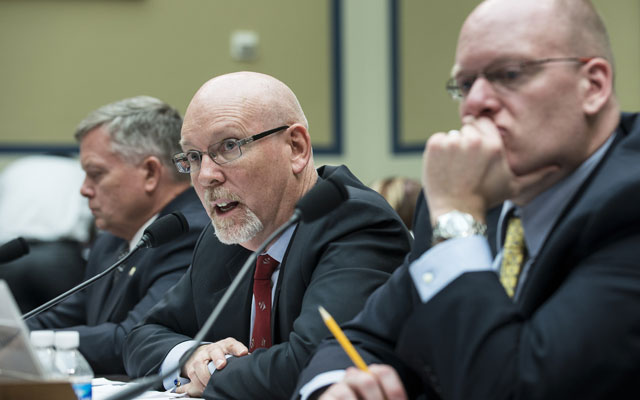This is one of those comparisons that, once made, seems so obvious you can’t believe you didn’t see it before. The NRA is hell-bent on preventing even the most moderate and reasonable gun-control regulation because they believe that any incremental shift today will lead to a gradual erosion of the Second Amendment over time and, to the NRA, there’s nothing more important than the Second Amendment. Well, how about pro-choice groups that oppose even the most moderate and reasonable abortion regulation because they believe that any incremental shift today will lead to a gradual erosion of the right to choose over time. Looks pretty similar, doesn’t it? (I picked out NARAL–the National Abortion Rights Action League–just because of the acronym is somewhat similar to the NRAs.)
What’s really surprising, however, is that this comparison is being drawn in a piece at The Daily Beast, of all places.

The piece, by Kirsten Powers, is obviously written from a pro-life slant. After all, one of her main points is the frank assertion that “late-term abortion is infanticide”. That’s an explosive-enough charge that I’m sure it’s going to make the entire article radioactive. The problem is: she’s pretty obviously right. In the first place, serious pro-choice thinkers and activists can’t tell the difference themselves. That’s why plenty of pro-choice philosophers like Peter Singer (there are others, too) build on the legacy of Judith Jarvis Thomson to openly argue for infanticide. But it’s not just academics, Planned Parenthood representatives will say the same thing, and Gosnell’s inability to see the significant of the before/after line when it comes to birth is not unique among abortionists who perform late-term abortions. So, explosive as the accusation may sound, it’s born out in reality.
But even setting aside that particular argument, Powers’ is clearly relatively moderate on this issue. She believes life begins at conception, but has also never voted for anyone but a Democrat and says this proves “overturning Roe v. Wade is not one of my priorities.” What isn’t moderate, however, is current American law. Powers draws the contrast with Europe to make that point:
But medical advances since Roe v. Wade have made it clear to me that late-term abortion is not a moral gray area, and we need to stop pretending it is. No six-months-pregnant woman is picking out names for her “fetus.” It’s a baby. Let’s stop playing Orwellian word games. We are talking about human beings here.
How is this OK? Even liberal Europe gets this. In France, Germany, Italy, andNorway, abortion is illegal after 12 weeks. In addition to the life-of-mother exception, they provide narrow health exceptions that require approval from multiple doctors or in some cases going before a board. In the U.S., if you suggest such stringent regulation and oversight of later-term abortions, you are tarred within seconds by the abortion rights movement as a misogynist who doesn’t “trust women.”
As with the gun-control issue, the fundamental problem seems to be Constitutionality. When an American law is questioned in a way that makes people think the Constitution is directly involved, the stakes go through the roof. Gun-control legislation clearly fits the bill because of the Second Amendment, and also the well-publicized statements from many leaders of the gun-control movement that their ultimate aim is to confiscate and ban virtually all civilian weapons. Until Roe v Wade, abortion wasn’t a Constitutional issue, and across the country in the 1970s the democratic process was working to liberalize the laws in fits and starts in the usual process of moderation that would likely have resulted in laws similar to what exist in Europe. But Roe v Wade, in further evidence that it was one of the worst SCOTUS decisions in history, short-circuited this democratic legislative process. It handed the pro-choice side everything they could have asked for and more and, as an ironic consequence, meant that from that moment forward the pro-choice side had nothing to win and everything to lose.
Which leads us directly to Gosnell.
There has never been evidence of a back-alley abortionists prior to Roe who operated with the same callous disregard for humanity (not to mention racism) of Kermit Gosnell. To the extent that pre-Roe abortions were dangerous, it was a reflection of overall dangerous surgical practices and not the legality of abortion. No, the real horrors or back-alley abortions have only happened after and as a result of Roe v. Wade.







